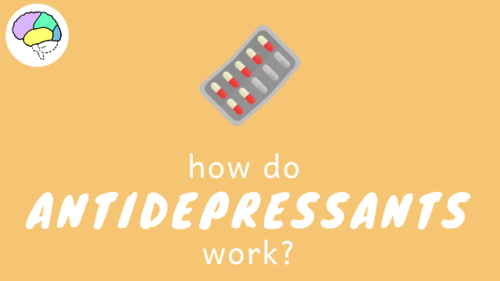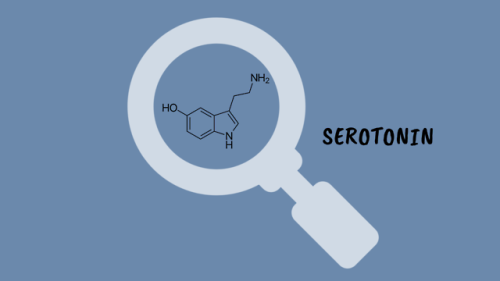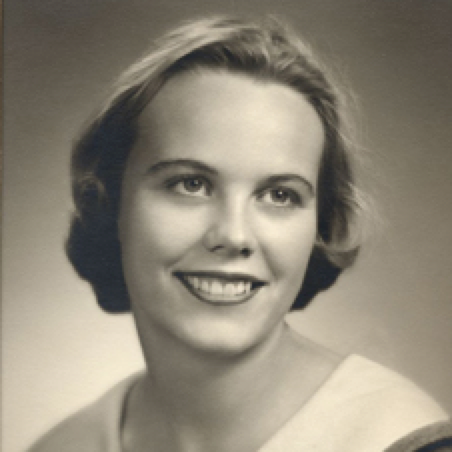Finally Got The Pure Nile Red In Solution, Just Need To Evaporate To Get The Pure Dye.

Finally got the pure Nile Red in solution, just need to evaporate to get the pure dye.
Interesting fact: Nile Red is a solvatochromic dye. What does this mean? Solvatochromism is the ability of a chemical substance to change color due to a change in solvent polarity, so it has different color in different solvents. Also its emission and excitation wavelength both shift depending on solvent polarity, so it fluoresces with with different color depending on the solvent what it’s dissolved in.
In this case it was dissolved in dichloromethane.
More Posts from Contradictiontonature and Others



How Do Antidepressants Work? (Video)
Your brain is a network of billions of neurones, all somehow connected to each other. At this very second, millions of impulses are being transmitted through these connections carrying information about what you can see and hear, as well as your emotional state. It’s an incredibly complex system but sometimes things go wrong. Despite extensive research, we are still not certain on the biology that underlies mental illnesses- including depression. However, we have come pretty far in developing effective treatments.

It’s nearly the season of the witch: time for some cauldron chemistry
Midwives and nurses sometimes came under suspicion because of their specialised knowledge and success - or failure - in treating those who were sick. These healing roles were traditionally taken on by women who, until around the turn of the nineteenth century, were excluded from formal medical training. However, many still practiced medicine in their homes and villages, and what they had learned came from shared knowledge and trial and error, rather than accepted official sources. A medical education might not have been a great help in any case. In the days before germ theory the causes of sickness and the reasons for recovery were not obvious. Any recoveries could be seen as miraculous … or the result of witchcraft.
Treating sickness and disease pre-germ theory was largely guesswork. All sorts of noxious compounds were administered to ailing individuals, and if they produced any effect on the body, be it vomiting, diarrhoea or sweating, it was seen as a good thing – and that was the practice of the so-called professionals. It is not hard to see how images of unofficial healers and herbalists (both men and women) stooping over boiling pots of herbs, roots and who-knows-what, could become a template for the image of a witch, especially when many of the concoctions they produced had such unpleasant effects on their patients.
Having said that, herbalists and traditional healers should not be dismissed as completely ignorant of the medical benefits of some of the plants and poultices they used. Some of the ingredients associated with traditional healing and witches’ potions have been found to be hugely beneficial to medicine once they have been isolated, tested and modified. Science has enabled us to identify the key components of some plants and test them to determine how and when they should be administered safely and effectively. Chemists have modified the structures of some of the compounds to reduce side-effects, make drugs more potent or lower their toxicity.
Brain Parasites: part II.
Taenia solium:

The pork tapeworm, Taenia solium, is the most harmful tapeworm in humans. Taenia solium infection is acquired either from human feces that contains Taenia solium eggs or from uncooked pork which contains larval cysts. If larvae are ingested, they mature into adults in the small intestine. This infection type is called taeniasis and is often asymptomatic. If eggs are ingested, the resulting disease is cysticercosis. It gets its name from larval Taenia solium called cysticercus. Both diseases are common in Africa, Asia, South America and Southern Europe. Taeniasis is rare in Muslim countries since people there do not consume pork.
Keep reading

It’s time for #TrilobiteTuesday! During their lengthy trek through time, trilobites existed in an almost dizzying array of sizes and shapes. Perhaps no other creature in the entire history of the earth has ever displayed the diversity of design shown by these singularly distinctive arthropods. But at their heart (and yes, trilobites apparently did possess primitive but effective cardio-respiratory systems), they were all remarkably similar. Named not, as is generally surmised, for their three main body segments – cephalon (head), thorax (body) and pygidium (tail) – but rather for the three lobes that longitudinally divided their dorsal exoskeleton. Whether they were Cambrian Olenellids – such as this Olenellus romensis from Alabama – or Devonian Phacopids, most trilobites presented a fundamentally analogous body design. Such characteristics as occipital lobes, anterior margins and facial sutures (which allowed early trilobites to shed their molting shell), were shared by the majority of trilobite species, as were such exotic-sounding features as axial rings, articulating facets and pleural spines.

After the heart is “cleansed of blood and all cells”, only connective tissues remain. This is ideal for doing heart transplants because the recipient’s immune system is less likely to reject the ghost heart if it has no trances of the donor’s body. [Image via http://bit.ly/2izEnse]
Getting Enraged By Specific Noises Has A Genuine Neurological Basis. Does the sound of whistling enrage you? How about the noise of someone eating? It now seems likely that those people who get infuriated by certain sounds might not just be being fussy, but actually have brains hardwired to produce an excessive emotional response to particular noises.

How are elements created in space, stars, and in laboratories? The latest edition of #PeriodicGraphics in C&EN takes a look! http://bit.ly/2UXWoPD http://bit.ly/2YbuBNE


Happy Halloween!
Guncotton in a pumpkin and the decomposition of hydrogen peroxide catalysed by potassium iodide, on the roof of the Ri.


Meet the all-female team of coders that brought us Apollo 11.
In 1969, the world watched as Neil Armstrong marked his historic achievement with the words, “That’s one small step for man, one giant leap for mankind.” His now-famous transmission was heard around the globe thanks to NASA’s Deep Space Network, which made communication from outer space possible.
That network was built by a woman named Susan Finley. She was part of an all-female team of coders whose work was integral to the success of the Apollo 11 mission. Science writer Nathalia Holt brings us their stories in her book, Rise of the Rocket Girls: The Women Who Propelled Us from Missiles to the Moon to Mars.
Listen to their story here.
[Images via NASA]
-
 creaturousheathen reblogged this · 2 years ago
creaturousheathen reblogged this · 2 years ago -
 creaturousheathen liked this · 2 years ago
creaturousheathen liked this · 2 years ago -
 procrastinate-holmes liked this · 4 years ago
procrastinate-holmes liked this · 4 years ago -
 wertherweather86-blog liked this · 5 years ago
wertherweather86-blog liked this · 5 years ago -
 gladisyanez liked this · 7 years ago
gladisyanez liked this · 7 years ago -
 kosekiyukito liked this · 7 years ago
kosekiyukito liked this · 7 years ago -
 roverlandauto liked this · 7 years ago
roverlandauto liked this · 7 years ago -
 emidinobunny liked this · 7 years ago
emidinobunny liked this · 7 years ago -
 kobresias liked this · 7 years ago
kobresias liked this · 7 years ago -
 nuance reblogged this · 7 years ago
nuance reblogged this · 7 years ago -
 osanqiplumk-blog liked this · 7 years ago
osanqiplumk-blog liked this · 7 years ago -
 we-are-asclepianmage reblogged this · 7 years ago
we-are-asclepianmage reblogged this · 7 years ago -
 m-caesarcrown-blog liked this · 8 years ago
m-caesarcrown-blog liked this · 8 years ago -
 chemysterythings-blog reblogged this · 8 years ago
chemysterythings-blog reblogged this · 8 years ago -
 carminecrimson reblogged this · 8 years ago
carminecrimson reblogged this · 8 years ago -
 papapagagaga4756-blog reblogged this · 8 years ago
papapagagaga4756-blog reblogged this · 8 years ago -
 papapagagaga4756-blog liked this · 8 years ago
papapagagaga4756-blog liked this · 8 years ago -
 autotoxins reblogged this · 8 years ago
autotoxins reblogged this · 8 years ago -
 checzchok reblogged this · 8 years ago
checzchok reblogged this · 8 years ago -
 luminiferousloser reblogged this · 8 years ago
luminiferousloser reblogged this · 8 years ago -
 allisonsaidthis liked this · 8 years ago
allisonsaidthis liked this · 8 years ago -
 flying-duchess liked this · 8 years ago
flying-duchess liked this · 8 years ago -
 cosmicnomad reblogged this · 8 years ago
cosmicnomad reblogged this · 8 years ago -
 cosmosine liked this · 8 years ago
cosmosine liked this · 8 years ago -
 rake-moms liked this · 8 years ago
rake-moms liked this · 8 years ago -
 adventures-in-the-lab reblogged this · 8 years ago
adventures-in-the-lab reblogged this · 8 years ago -
 18crown6ether liked this · 8 years ago
18crown6ether liked this · 8 years ago -
 katflix liked this · 8 years ago
katflix liked this · 8 years ago -
 agentengineer00-blog liked this · 8 years ago
agentengineer00-blog liked this · 8 years ago -
 limarioa-blog liked this · 8 years ago
limarioa-blog liked this · 8 years ago -
 proximal-axolotl liked this · 8 years ago
proximal-axolotl liked this · 8 years ago -
 hermorningelegancel liked this · 8 years ago
hermorningelegancel liked this · 8 years ago -
 checzchok reblogged this · 8 years ago
checzchok reblogged this · 8 years ago -
 kevinv11-thunder-blog liked this · 8 years ago
kevinv11-thunder-blog liked this · 8 years ago -
 furryandfearless liked this · 8 years ago
furryandfearless liked this · 8 years ago
A pharmacist and a little science sideblog. "Knowledge belongs to humanity, and is the torch which illuminates the world." - Louis Pasteur
215 posts


